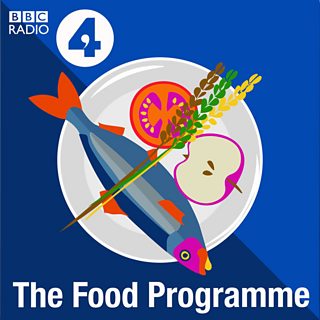Eight reasons to enjoy eating alone
Not everyone enjoys solo dining, as Sheila Dillon discovers in the Food Programme. But, with almost half of all adult mealtimes now being spent alone, we’ve uncovered eight reasons why unaccompanied eating might actually be a good thing.

1. You can eat whatever you like
Eating alone leaves you free to consume what you please without worrying about other people’s preferences.
Maybe you’ve got a secret love of something strong smelling – like surströmming, the Swedish fermented fish that has an odour so overpowering it’s usually eaten outdoors. Or perhaps you’re a committed carbohydrate lover who’s too embarrassed to shovel down a plate of potatoes or a bowl of plain pasta in company. With no one there to judge your meal choices, you’ll be truly free to indulge your oddest culinary cravings – from jam and stilton sandwiches to bacon with banana sauce.
The best bit? You can try out creative new combinations without the risk of ruining another person’s dinner if it all goes wrong. Who knows, you might even uncover the next unlikely culinary craze, like deep-fried pizza, salted caramel or the sushi burrito.
2. You don’t have to share your food

Have you ever ordered a delicious dish, only to find your friends all want to try a bit? While it may be good to share, it’s not much fun losing 20% of your fillet steak in exchange for a forkful of fish pie.
Unaccompanied eating may be quieter, but it offers the chance to chomp through an entire meal without giving away a single mouthful.
3. It might make it easier to maintain a healthy diet
If you’re trying to follow a healthy eating plan, dining solo may mean you’re more likely to stick to it.
Research presented to the American Heart Association suggests dieters have a 60% chance of lapsing when eating with others. Another study by psychologists at Georgia State University showed group meals resulting in people eating 44% more, including a higher amount of fat.
So, if your friends or family have a habit of pushing big portions or extolling the merits of meringues and cream, it might be safer to spend some mealtimes on your own. In fact, research suggests you’re least likely to overeat while dining in your car – but that’s probably not a recipe for happiness.
4. You can eat at your own pace
Research suggests that we generally adjust our eating to reflect the behaviour of the person we’re with. One study revealed that two young women dining together will tend to synchronise their eating, to the extent that each of them is more likely to take a bite of food immediately after the other.
By eating alone, you may find it easier to consume food at your own pace and in the quantities you choose. Beware if you have dinner in front of the TV instead, though. Action-packed shows and films take your awareness away from what you’re eating and have been shown to increase people’s food intake.
Get the Food Programme podcast

Let the Food Programme take you on a culinary journey around the world as they investigate all things food, from the ordinary to the exotic. Download here or via your favorite podcast provider.

5. It gives you a chance to focus on the flavour
Eating alone puts the food centre stage. It means you can take time to truly enjoy its tastes and textures, instead of listening to Tara talk about her new car or feigning interest in Rod’s job selling parquet flooring.
6. You can eat out and let the world entertain you
Eating out alone may take a bit of getting used to, but watching what’s going on in the real world could beat staying at home in front of a boxset. Busy restaurants offer plenty to keep your attention occupied, and you can often sit at a counter rather than opposite an empty chair.
If you’re worried about looking lonely on your own, don’t be: solo dining is on the rise and 87% of Britons say they would be happy to eat alone. A 2015 study by OpenTable found that solo restaurant bookings had more than doubled in two years, so chances are you won’t be the only person choosing a table for one.

7. You won’t have to listen to other people chewing
If the sound of someone’s sloppy eating has ever made you long to dine alone, now’s your chance to eat in peace. Solo mealtimes will save you from the cacophony of chomping, chewing and swallowing that often emanates from fellow eaters.
For some people, the sounds of others eating can produce a seriously strong reaction. Sufferers of misophonia are so heavily affected by noises such as chewing that they experience a physical fight-or-flight response on hearing them. It’s not yet known how common the condition is though, or how to reliably diagnose it.
8. You can eat whenever and wherever you like
From fry-ups in bed at 5pm to toast and tea with your morning bath, eating on your own offers endless options for where and when to eat. Avoid strong flavours first thing though, or you could be carrying them around all day – and no one wants to become known for bringing the fresh scent of garlic to the Monday morning meeting.
-
![]()
Food Programme: Eating Alone
Sheila Dillon presents a Food Programme series about how we eat now. In the first programme, she explores the guilty pleasures of eating alone.
Feeling peckish?
-
![]()
Nine citrus secrets
We have gathered together some astonishing citrus facts.
-
![]()
The really hard cheese quiz
How much do you know about cheese?
-
![]()
The ultimate pizza quiz
How much do you really know about this Italian delight?
-
![]()
Eight flavours that work with strawberries
These pairings may sound unusual, but they are delicious.





